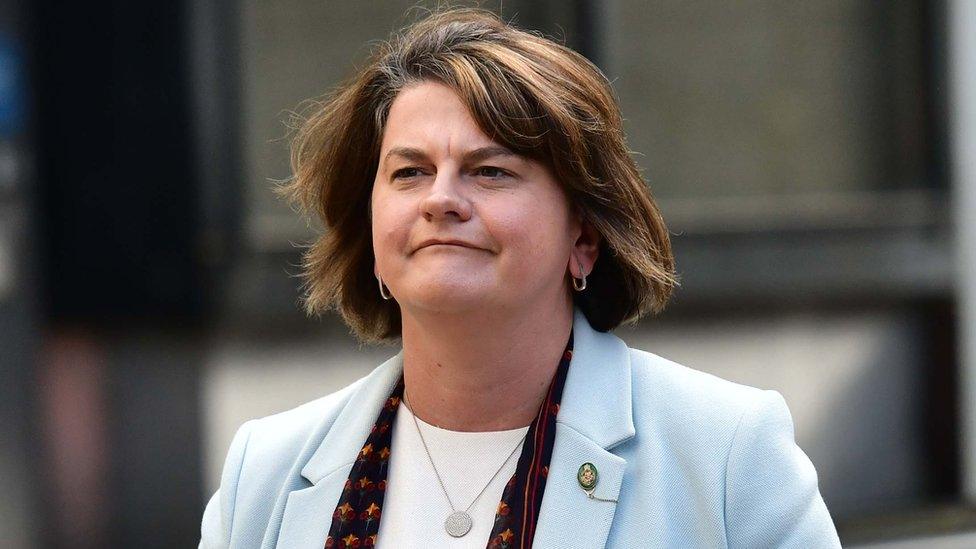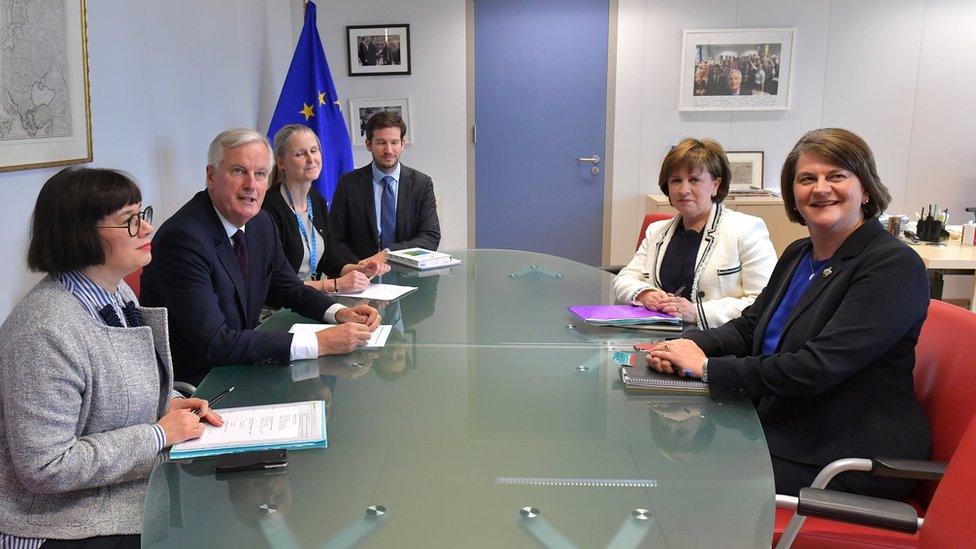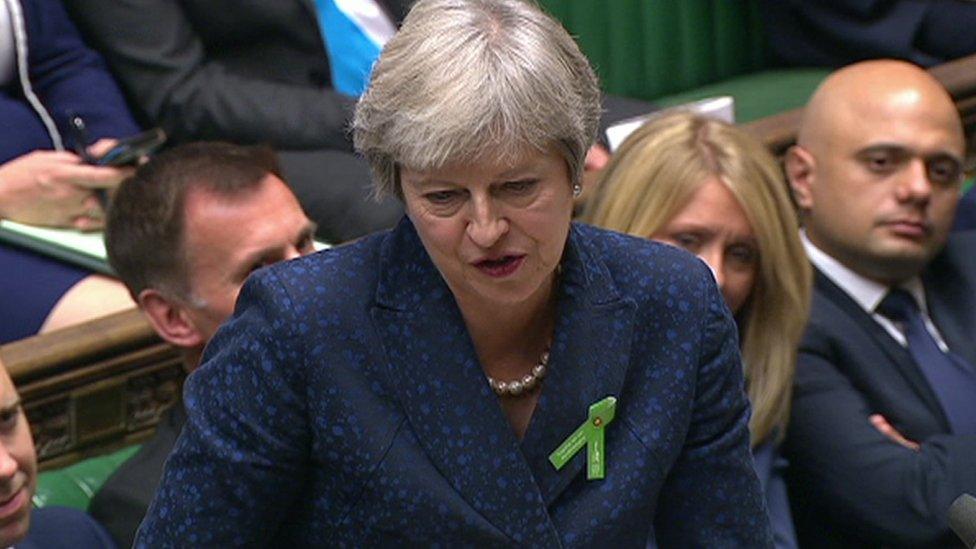Theresa May cannot recommend Brexit deal says DUP
- Published
- comments

Mrs Foster said she again spelled out her opposition to the EU's proposal to keep NI subject to its trade regulations post-Brexit
The DUP leader has said Theresa May cannot "in good conscience" recommend a Brexit deal that places a trade barrier on businesses moving goods from one part of the UK to another.
Arlene Foster was speaking at the end of a three-day trip to Brussels.
Mrs Foster said she again spelled out her opposition to the EU's proposal to keep Northern Ireland subject to its trade regulations after Brexit.
She did not play down the rift between her party and the government.
The DUP has said it could vote down the Budget later this month.
Mrs May relies on DUP support in key votes because she does not have a majority in the House of Commons.
Speaking on Thursday afternoon, Mrs Foster said "these are significant days for Northern Ireland and the United Kingdom as we know it".
She said the EU plan for checks on goods was "a one-way turnstile, which could restrict trade from Great Britain to Northern Ireland".
Far from being the best of both worlds, the EU plan "is the worst of one world", Mrs Foster said.
Meanwhile, the prime minister has said she is not expecting a breakthrough at next week's EU summit.
She said talks between Britain and the EU on the crucial question of how to avoid a hard border are likely to continue until November.
Asked if she is concerned about the DUP's threats to withdraw their support, Mrs May responded only by noting that "the DUP will do what the DUP will do".
Sammy Wilson said his party could withhold support for government over Brexit
Earlier, East Antrim MP Sammy Wilson said the DUP has threatened to take serious action if it remains unhappy over the government's Brexit plans.
He added that the party's abstention on the agriculture bill on Wednesday night was a warning to the government.
Conservative MP Helen Grant said she believed the DUP was "bluffing" about withholding its support.
However, speaking to BBC Northern Ireland's The View programme on Thursday night, Mr Wilson insisted the party was not.
"This is far too important an issue to bluff. This is not a game, this is a very serious issue... it is our hope that we will never have to carry out the threat which we have said may be necessary."
Writing in Thursday's Daily Telegraph, he said "briefings and leaks" suggested the UK might consider arrangements that could exclude Northern Ireland from the UK's trade deals or lead to checks on goods arriving from Great Britain.
Speaking about the agriculture bill vote, Mr Wilson told BBC News: "It was a way of reminding the government that while our vote wasn't important last night, it would be important some time in the future, and we would have no hesitation withholding it if we thought that was a necessary sanction to impose.
Allow X content?
This article contains content provided by X. We ask for your permission before anything is loaded, as they may be using cookies and other technologies. You may want to read X’s cookie policy, external and privacy policy, external before accepting. To view this content choose ‘accept and continue’.
"It was a warning: 'Don't take us for granted, we're in an agreement with you, but it's a two-sided agreement.
"'You keep your side, we'll keep our side, you break your promises and we then don't feel committed to keeping our side of the bargain.'"

Mrs Foster met EU negotiator Michel Barnier on Tuesday
He added: "If they (the government) decide to cave in to the unreasonable and unnecessary demands which are being promoted by Brussels, then we will have to consider whether or not they have kept their side of the bargain.
"If they haven't, there'll be consequences, and one of the consequences is the votes that we have promised to deliver for their domestic legislation will not be forthcoming."
The agriculture bill passed its second reading despite the DUP's abstention, which means it will now come under detailed scrutiny in committee.
Mr Wilson said that the confidence-and-supply agreement must be honoured by both sides, and that if Theresa May were to accept the EU's current proposals for the Irish backstop, this would be serious enough for the DUP to refuse to vote with the government when it comes to the Budget.
"If the prime minister were to cave in to the demands that we know Michel Barnier is making... that's serious enough, for the UK, for us to take the kind of action that we're going to take, and that we have threatened to take."
He said Mr Barnier's demands included "that we would stay as part of the single market, our laws in NI would be made in Brussels, not London, that we would not be able to be part of future UK trade deals, that the ECJ would make decisions about the rules and regulations in Northern Ireland".
"The ball isn't really in our court," he added. "The government has to contemplate the consequences of giving in to the demands which are being made from Brussels at the minute."
- Published10 October 2018

- Published9 October 2018